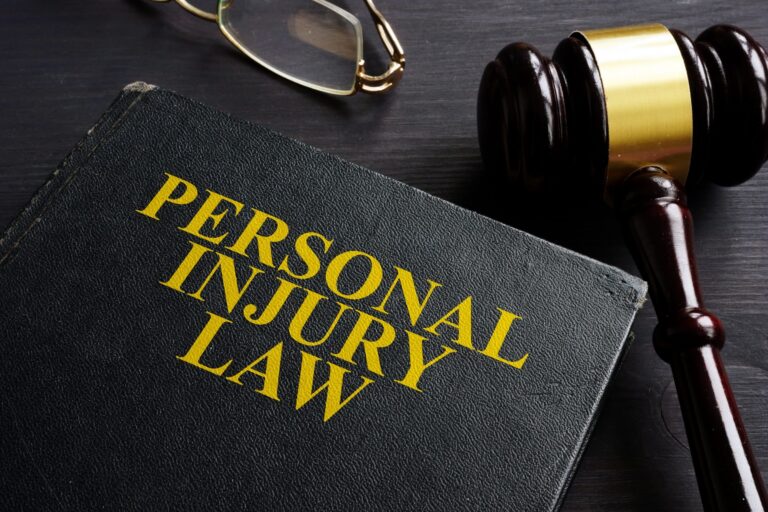Key Takeaways:
- Intellectual property lawyers are essential for protecting valuable creative assets and safeguarding them from theft and infringement.
- These lawyers specialize in intellectual property laws and regulations, assisting with research, registration, enforcement, and commercial transactions.
- Challenges in protecting creative assets include identifying and defining intellectual property, international protection, infringement, and complex legal processes.
- When hiring an intellectual property lawyer, consider their expertise, track record, and communication skills.
- Protecting intellectual property involves identifying and registering assets, enforcing and defending rights, and utilizing alternative dispute resolution methods.
- Emerging issues and trends include navigating intellectual property in the digital age, protecting AI and machine learning inventions, and addressing international intellectual property laws and cross-border disputes.
Why Intellectual Property Lawyers Are Essential for Protecting Your Creative Assets
1. Understanding the Importance of Intellectual Property
Intellectual property refers to the legal rights that protect creations of the mind, such as inventions, designs, artistic works, trademarks, and trade secrets. These assets are valuable and can play a crucial role in the success of businesses and individuals alike. However, they can be vulnerable to theft, infringement, and misuse without proper protection.
This is where intellectual property lawyers come in. They specialize in providing legal counsel and representation in matters related to intellectual property. Their expertise ensures that your creative assets are safeguarded, giving you the peace of mind to continue pursuing your innovative endeavors.
2. The Role of Intellectual Property Lawyers in Safeguarding Your Innovations
Intellectual property lawyers play a vital role in protecting your innovations. They have an in-depth understanding of intellectual property laws and regulations, allowing them to navigate the complexities of the legal system on your behalf. Their expertise extends to various aspects of intellectual property, including patents, copyrights, trademarks, and trade secrets.
One of the key responsibilities of an intellectual property lawyer is conducting thorough research and analysis to ensure that your creative assets are original and not already protected by someone else’s rights. They assist in registering your intellectual property, which provides official documentation of your ownership and exclusive rights. This registration is essential in establishing legal protection and acting as a deterrent against infringement.
In the event of infringement or unauthorized use of your intellectual property, lawyers are equipped to take swift action. They will initiate legal proceedings to enforce your rights, seek compensation for damages, and potentially obtain injunctions to prevent further infringement. Intellectual property lawyers have the necessary knowledge and skills to navigate the litigation process and build a strong case on your behalf.
Additionally, intellectual property lawyers can provide advice and guidance on licensing agreements, negotiation of contracts, and other commercial transactions involving intellectual property. They ensure that your rights are protected in these agreements and help you maximize the value of your intellectual assets.
3. Common Challenges Faced in Protecting Creative Assets
While intellectual property lawyers play a crucial role in protecting creative assets, there are common challenges that individuals and businesses may face in this process:
- Identifying and defining intellectual property: Determining what qualifies as intellectual property and how it should be protected can be complex. Intellectual property lawyers assist in identifying and defining your creative assets to ensure comprehensive protection.
- International protection: As businesses expand globally, protecting intellectual property across borders becomes challenging. Intellectual property lawyers can navigate international laws and treaties to safeguard creative assets in different jurisdictions.
- Infringement and piracy: Infringement and piracy of intellectual property are persistent issues in the digital age. Intellectual property lawyers employ various strategies to combat unauthorized use and distribution, including cease-and-desist letters, takedown notices, and litigation.
- Complex legal processes: Intellectual property litigation can involve complex legal processes and terminology. Intellectual property lawyers have the expertise to guide clients through these processes and ensure their rights are effectively protected.
By working closely with intellectual property lawyers, individuals and businesses can overcome these challenges and mitigate the risks of protecting their creative assets.
What to Consider When Hiring an Intellectual Property Lawyer
1. Expertise and Specialization in Intellectual Property Law
When hiring an intellectual property lawyer, it is essential to consider their expertise and specialization in intellectual property law. Look for a lawyer with extensive experience handling cases specifically related to your type of intellectual property. For example, if you need assistance with patent protection, seek a lawyer with a strong background in patent law.
Additionally, consider whether the lawyer has a solid understanding of the industry in which your creative assets operate. A lawyer familiar with the nuances and challenges of your industry can provide tailored advice and better protect your intellectual property rights.
2. Track Record and Success in Intellectual Property Cases
Critical factors include a lawyer’s track record and success in handling intellectual property cases. Look for testimonials, case studies, and client references demonstrating the lawyer’s ability to protect and defend intellectual property rights successfully.
Inquire about the outcomes of previous cases and whether the lawyer has experience in both negotiation and litigation. A skilled negotiator can often achieve favorable settlement agreements without a protracted legal battle. However, if litigation becomes necessary, hiring a lawyer with a proven record of success in the courtroom is crucial.
3. Communication and Collaboration for Effective Legal Support
Effective communication and collaboration are vital when working with an intellectual property lawyer. You want a lawyer who will actively listen to your concerns, explain legal concepts in plain language, and keep you informed about the progress of your case.
Consider the lawyer’s responsiveness and availability. Intellectual property matters may require quick action, so it is crucial to have a lawyer who is accessible and responsive to your needs.
Furthermore, consider the lawyer’s approach to collaboration. Intellectual property cases often involve input from multiple stakeholders, such as inventors, business executives, and consultants. A lawyer who can effectively collaborate with these parties and integrate their perspectives into the legal strategy can provide more comprehensive and impactful representation.
The Process of Protecting Your Intellectual Property
1. Identifying and Registering Your Intellectual Property
The first step in protecting your intellectual property is identifying and defining the assets that require protection. This involves determining whether your innovations qualify for patents, copyrights, trademarks, or trade secret protection.
Once identified, it is crucial to register your intellectual property with the relevant government authorities. Registration provides tangible evidence of your ownership and exclusive rights, making it easier to enforce those rights in case of infringement.
An intellectual property lawyer can guide you through the registration process, ensuring that all necessary documentation is prepared and filed correctly.
2. Enforcing and Defending Your Intellectual Property Rights
Enforcing and defending your intellectual property rights involves taking appropriate action against infringement or unauthorized use. This may include sending cease-and-desist letters, pursuing litigation, or engaging in alternative dispute-resolution methods.
Intellectual property lawyers play a crucial role in these enforcement actions. They will gather evidence, analyze the strength of your case, and develop a legal strategy to protect your rights and seek appropriate remedies or damages.
When intellectual property rights are challenged or infringed upon, intellectual property lawyers will defend your interests by building a robust defense, conducting negotiations, and representing you in court if necessary.
3. Alternative Dispute Resolution and Intellectual Property Law
Alternative dispute resolution (ADR) methods, such as mediation and arbitration, can effectively resolve intellectual property disputes efficiently and cost-effectively.
Intellectual property lawyers can advise on the suitability of ADR for your specific case and guide you through the process. They will utilize their negotiation and advocacy skills to represent your interests during ADR proceedings and work towards a mutually beneficial resolution.
Emerging Intellectual Property Issues and Trends
1. Navigating Intellectual Property in the Digital Age
The digital age has brought about unique challenges for intellectual property protection. With the ease of digital reproduction and distribution, preventing unauthorized use and piracy has become more complex.
Intellectual property lawyers must stay abreast of evolving technologies and digital platforms to protect their clients’ creative assets effectively. They employ strategies such as digital rights management, website take-down notices, and anti-piracy measures to combat infringement in the digital realm.
Moreover, intellectual property lawyers assist clients in leveraging digital platforms to their advantage through licensing agreements, e-commerce strategies, and online brand protection.
2. Intellectual Property Protection for Artificial Intelligence and Machine Learning
The rise of artificial intelligence (AI) and machine learning technologies has opened new avenues for innovation and raised novel intellectual property concerns. Protecting AI algorithms, datasets, and inventions requires a specialized understanding of intellectual property laws.
Intellectual property lawyers with AI and machine learning expertise can advise on patentability, trade secret protection, and licensing in this rapidly evolving field. They work closely with inventors and companies to ensure that their AI-related intellectual property rights are adequately protected.
3. International Intellectual Property Laws and Cross-Border Disputes
In an increasingly globalized world, navigating international intellectual property laws and resolving cross-border disputes has become a significant concern for businesses.
Intellectual property lawyers with international experience can assist clients in protecting their creative assets across jurisdictions. They understand the nuances of international treaties, such as the Madrid Protocol and the Paris Convention, and can provide guidance on filing international applications, enforcing rights abroad, and resolving disputes.
Additionally, lawyers can help businesses develop global intellectual property strategies that align with their international growth plans and ensure compliance with local laws.
In conclusion, intellectual property lawyers are critical to protecting creative assets. Their expertise in intellectual property laws and regulations, ability to navigate complex legal processes, and experience in enforcing and defending intellectual property rights make them essential partners for individuals and businesses seeking to safeguard their innovations. By hiring an intellectual property lawyer with the appropriate expertise, track record, and communication skills, individuals and businesses can ensure comprehensive protection for their intellectual property and mitigate the challenges that arise in an ever-changing landscape.
FAQ
Question: What is intellectual property? – Intellectual property refers to the legal rights that protect creations of the mind, such as inventions, designs, artistic works, trademarks, and trade secrets.
Question: Why are intellectual property lawyers essential? – Intellectual property lawyers are essential for protecting valuable creative assets and safeguarding them from theft and infringement. They specialize in intellectual property laws and regulations, assisting with research, registration, enforcement, and commercial transactions.
Question: What challenges are faced in protecting creative assets? – Challenges in protecting creative assets include identifying and defining intellectual property, international protection, infringement, and complex legal processes.
Question: How can intellectual property lawyers help with protecting innovations? – Intellectual property lawyers have an in-depth understanding of intellectual property laws and regulations, allowing them to navigate the complexities of the legal system on behalf of their clients. They assist with research, analysis, registration, enforcement, and commercial transactions.
Question: What should I consider when hiring an intellectual property lawyer? – Consider their expertise, track record, and communication skills when hiring an intellectual property lawyer. Look for a lawyer specializing in the type of intellectual property you need protection for and someone with a proven record of success in intellectual property cases.
Question: What is the process of protecting intellectual property? – Protecting intellectual property involves identifying and registering assets, enforcing and defending rights, and utilizing alternative dispute resolution methods.
Question: What are some emerging issues and trends in intellectual property? – Emerging issues and trends include navigating intellectual property in the digital age, protecting AI and machine learning inventions, and addressing international intellectual property laws and cross-border disputes.






